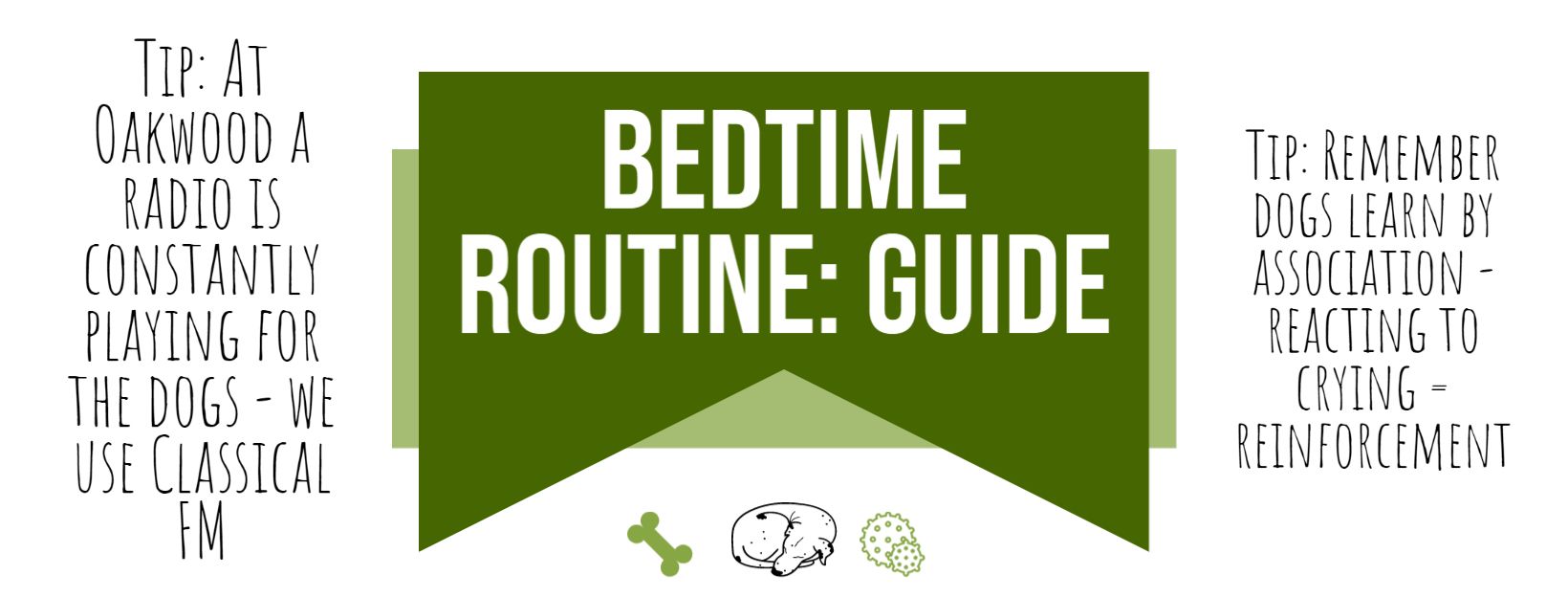
We all want a peaceful night’s sleep and taking on a rescue dog can truthfully disturb this. If it does not – consider yourself a lucky one! Unfortunately, there are no guarantees that your dog will or will not cry when it comes to night-time. Even if they have not cried in the kennels, going into a strange home can be very frighting to a dog – even a confident dog!
Your choice
Some owners prefer their dogs to sleep downstairs, whilst others prefer the dog to be upstairs with them. At the end of the day, it is your choice, however, there are pro’s and con’s to either decision. Whatever you decide, prepare yourself for some work. You may find that one location may not work for the dog and may have to look at another or be more open for the dog to be upstairs/downstairs.
Sleeping downstairs:
- Ensure the dog has been to the toilet prior to getting ready for bed to eliminate the likelihood of toileting accidents throughout the night.
- Get everything you need from the space where the dog is being left – i.e., Phones, chargers, drinks etc. What we do not want is for the dog to begin to settle and then someone needs to go and get something from the downstairs area and disturb the dog.
- Turn the lights off and close the door. It is advised that the dog is secured into their sleeping space until you know them a little better and can trust them with more space.
- Dogs that are more human-oriented are likely to cry on the night. This is because they are lonely. They have spent all day with the family and then they are left alone, not understanding what is happening. Do not get frustrated, try to see it from the dog’s perspective.
- Tough love is a must if you want your dog to sleep downstairs. If they cry, ignore it. Going down to the dog when they cry will teach them that crying = attention. Then you will become a pawn in your pup’s game. Do not give up. It will be upsetting hearing a dog cry, but with consistency, the dog will learn that they are not getting anything from crying and the habit will die down. If you can hear them being destructive, do not rush down. Again, they will learn that this brings mum and dad running. Make a noise, like a knock or thud, once the dog pauses to listen for the noise, then you can enter the room to assess the situation. Stay calm and do not shout at the dog. Contact us for advice if you are struggling.
- Remember, giving in at 2am is still giving in to their cries and will reinforce the crying. You can go and get some ear plugs if you wish. With time and consistency your dog will learn.
Sleeping upstairs:
This is likely to give you quieter nights in the shorter term, however, there will still be the odd con from this too.
Remember, Romanian dogs have likely not encountered stairs before and therefore, may be too nervous to go up them. If they do it is likely that they will struggle getting back down again. You can do some work on desensitising the stairs – place treats up 3 steps, then increase overtime. For coming downstairs, place treats on 3 steps and increase. Slowly but surely, they will get the hang of it.
If you find that your dog begins to guard a bed/sofa/room from you, we advise moving the dog out of the room or potentially downstairs. Do this with treats if you do not have a trailing line on your dog.
It would then be the case of not allowing the dog to get up onto the bed, sofa or into that room again to prevent the guarding. Again, if you struggle, contact us.
Sleeping in their crate (doors closed):
You must not do this until your dog has been trained to do so. This will mean lots more crate training and build up before doing so.
If you shut the dog into the create before it is trained to accept being in there for long periods, it is highly likely that they will panic overnight, which will lead to crying, destruction and trying to escape the crate – potentially injuring themselves in the process.
Remember, a crate can be used but you must keep the doors open until you have taught your dog to accept it for long periods.
If you need any further advice on bedtimes, feel free to contact us.